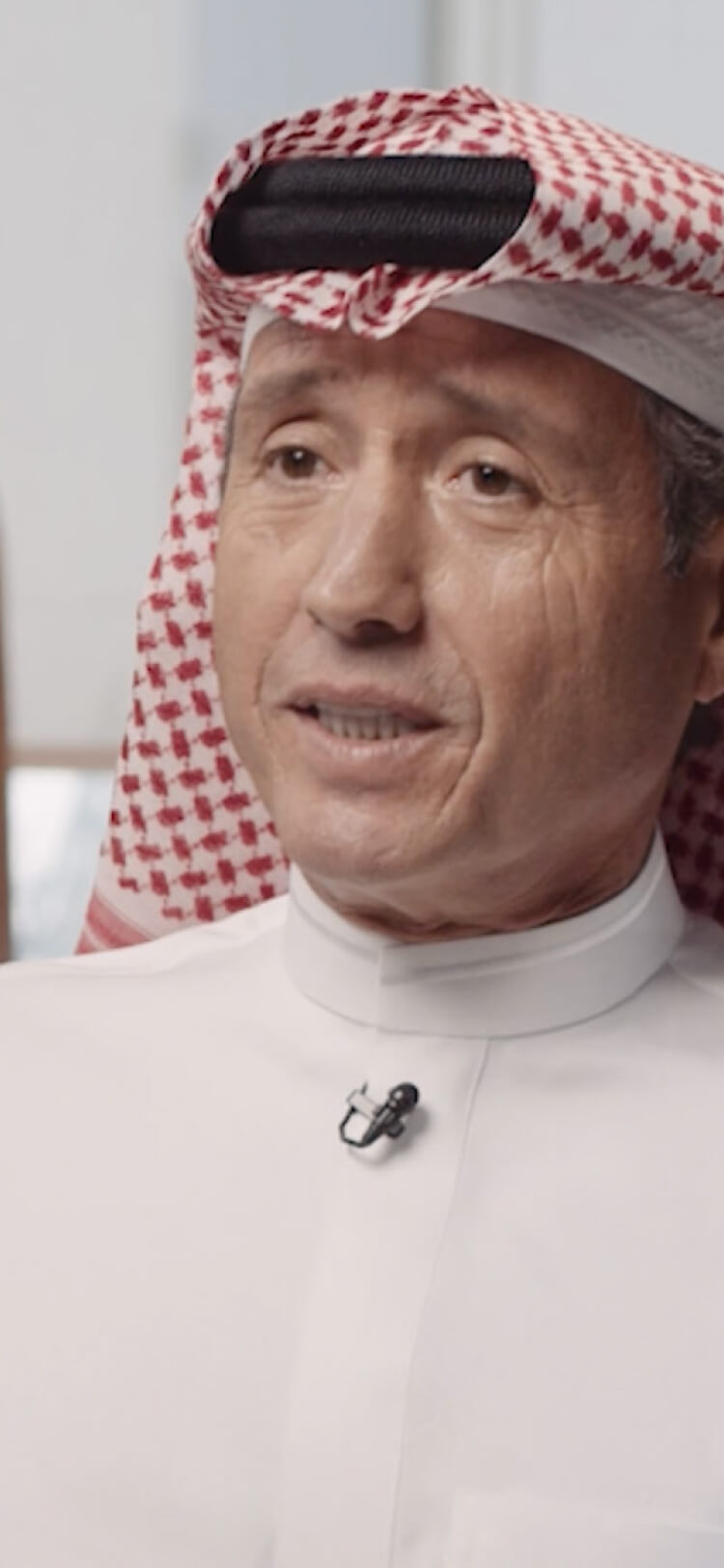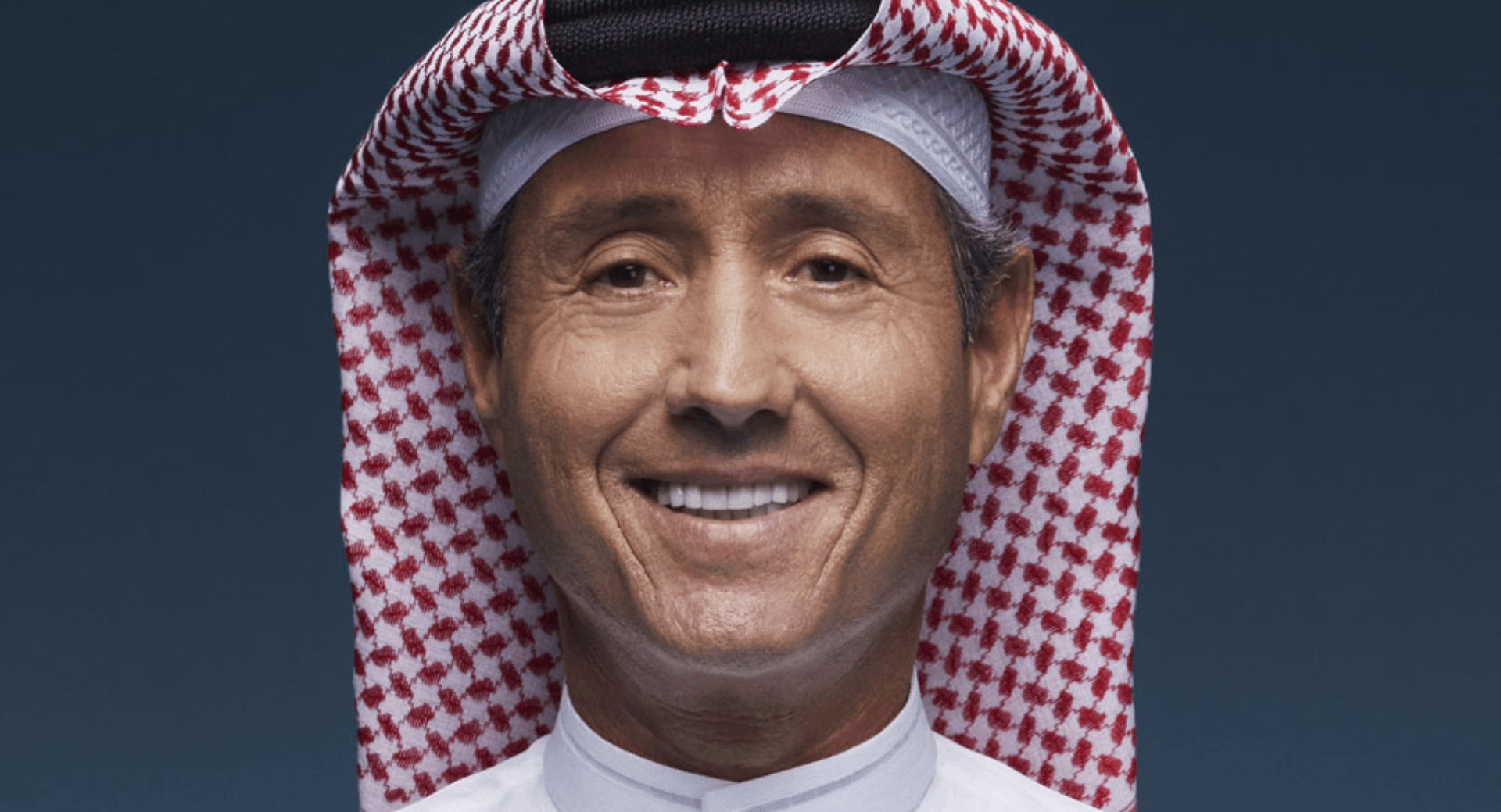Mr. Ayman Tamer
Chairman of Tamer Group
Healthy Partnerships
Closely aligned with the tenets of Vision 2030, Tamer Group occupied the forefront in healthcare in the kingdom through close partnerships with multinationals. It now embraces change and extends its reach through e-commerce.
We, as a group, realize we are part of the value chain that is under disruption. If we do not build e-commerce capabilities, we will be disrupted.
Mr. Ayman Tamer

READ FULL INTERVIEW...
Tamer Group celebrated its 100th anniversary last year. What remains of the original vision that launched it in 1922?
Our vision and purpose have not changed: they are to serve our community and take care of the societies around us. My grandfather started in 1922 by being in a pharmacy and doing more than just a pharmacist. He listened to the patients. Everybody came in, told him their story and their problems. He was more of a confidant in the community.
Today the purpose that still drives us is to serve our community and our country. With Vision 2030, we can do even more. The only difference is that we have upscaled our capabilities through technology and e-commerce to better serve our patients and consumers in the market.
How have foreign partners contributed to the success of the firm?
Our principals and partners played a pivotal role in our development. These multinational companies have allowed us to expose ourselves to the know-how and skills of different cultures, allowing us to adapt, evolve, and to reinvent ourselves constantly.
Whether it's in consumer segments or in healthcare, where we focus, these companies helped us develop our capabilities. They are symbiotic relationships. We also appreciate the access to market globally, and in turn we give one-stop service in the whole value chain.
Tamer Group is known for its commitment to nurturing local talent, one of the main pillars of Vision 2030. What are some concrete policies of the group in this respect?
We have policies in terms of nurturing, developing, and retaining local talent.
First you need to work on the culture. If you don't build an environment that allows you to attract and retain talent, then you're not going to succeed. You must have a healthy foundation, and that means creating a fair playing field in your business environment.
There is a saying: “We always join a company and leave a boss.” This is because the boss steals your ideas. You have to change the way your senior managers operate in order to create an environment that is friendly for talent. You must have an ethics committee. You must have a scorecard that rewards your managers not for numbers only; basically 75% of their remuneration is built on developing talent, upskilling that talent through mentorship, building the organization, building the customer. Only 25% relates to the financials. This scoring forces the senior manager to look for and recognize talent, and promote that talent because they get rewarded for it. And, of course, not to steal ideas from this new talent and drive it away.
Once you have that healthy culture, then talent will come and stay; otherwise, you'll have a hemorrhage of talent and always need to work on training and upskilling.
We are building what we call a performance evaluation and personal assessment. Our people are informed about their performance and we offer them tailormade training programs. Also, we consider our employees’ career path so that if today I want a salesman to be district manager, I need him to develop those sets of skills for tomorrow. I'd say about 10% of our workforce are on this program, if not more.
Many Saudi women and men working with us have received offers for higher salaries and didn't leave because they love the culture here and their career. Of course, we had to make some adjustments, but I think we listen to our people, and that's what differentiates us from other companies.
In 2021, the group purchased a majority stake in Mumzworld, an e-commerce platform, to expand its regional business. What does this acquisition mean for the overall strategy of the group?
We invested in Mumzworld more than ten years ago with the founders. It's been a success story.
And we, as a group, realize we are part of the value chain that is under disruption. If we do not build e-commerce capabilities, we will be disrupted. It is clear to us that today we need to reach the consumer in his home, and B2B is not the endpoint.
We are being more customer centric and understanding the future development of our industry. It was crucial to enter the e-commerce field. We entered with Mumzworld, in the mother and child segment, because of their success—and it's been a magnificent investment. We see Mumzworld as an innovation center that will help us develop other e-Health platforms in the future, to better serve our consumers and patients in the market.
What other moves are you preparing to increase your presence in international markets?
In December 2022, we launched an e-commerce platform called Pharmaciaty. This has four fronts. You have the technology side and the platform, and you have logistics and efficiency. We did not have the technology side; we did have the logistics. We have a B2B business, which is a lot more stable, easier to plan than e-commerce. As an example, when I take a new B2B business, I know that the volume is 100 tanks. I know I need 100 trucks. I know I need them once a week. I can pretty much plan my resources and run the thing efficiently from day one.
With e-commerce, your volumes and managing your stock works differently. You got Black Friday, or one day a product goes viral and it's selling like crazy and you've got to fulfil orders. Volumes instantly change, and handling single units versus bulk is a completely different ballgame. The future would be automation in the value chain because it's too labor intensive. You are packing piece by piece, and you are bundling pieces to the consumer. So there's a lot of inefficiency there.
All areas in fast-moving consumer goods will witness steady growth, especially those linked to e-commerce platforms. We aim to reach more millennials, gaining their loyalty from the beginning through multiple products. We are heavily focusing on group activities, including loyalty and incentive programs. Influencers and social media are critical in this effort, accompanied by many events, training sessions, and the necessary infrastructure. In addition, Tamer Group is targeting food and beverages, organic food, healthy snacks, and a female-product range.
Innovation is the name of the game in Saudi nowadays. Companies are investing heavily in technology to power a competitive edge. How is Tamer Group riding this wave?
We have the logistics part, and now we have the technology we need and the team that already has the experience of building a successful vertical e-commerce platform. Yet we have three million-plus loyal mothers on our platform who are not necessarily going to drive our e-commerce business; they might drive our OTC business, skincare, and other things, but the RX, prescription-driven medicine is another story. It's a different industry. And we're ready for it.
Technology and innovation are the only way forward. In terms of our evolution in technology, we started by building business excellence to get more efficient in organization. That was about 15 years ago. And then, five years later, we were more customer centric and started to use and develop our CRM, the applications technology that connects us more closely to our customers, suppliers and stakeholders, and runs the system for greater customer focus. Now we're coming to phase three, where we are taking the leap into an e-commerce platform and developing our front-end technology to offer an excellent customer experience.
In your opinion, how is Saudi Arabia’s healthcare sector evolving in terms of technology?
The sector is evolving in the same direction in Saudi Arabia as it is globally. With technology, the evolution in healthcare is going to accelerate for precision medicine, you're going to have a lot more result-driven healthcare.
Technology-driven medicine is going to be a huge opportunity. Biologics will play a major role in it. Now there are more than ten factories already here. If any public-private partnerships happen, it will be to focus more on high-end biologics and vaccines and ensure we have national safety.
Tamer Group is fully aware of the importance of ESGs. What are your plans to incorporate these environmental, social and governance principles into your management structure?
When developing our strategy, we consider ESG goals as an integral part. Today I really look at the values and culture of the new-generation millennials and Generation Z, who in another four or five years will be working. They are prioritizing environment, society, and good governance before anything else. People are worried that this new generation is living in unregulated platforms, and that they've lost their culture and values. On the contrary, they are rewriting and reprioritizing the values within the culture, getting rid of bad norms and habits that we carried along the way. What they're doing is healthy.
We adopted the SEI metrics approved in Davos, which are the most recent. There are about 65 metrics and 58 applied to us. We're going to incorporate them in three phases. Phase one will get 75% of the most basic and extended metrics. Phase two is about environment, which will require the right human upskilling. We are on track and working on this in 2023. And the third phase, the last 25%, will be in 2025. This phase requires third parties to also be compliant. It requires some investment in data analytics that we don't yet have.
Therefore, by 2024 we will know exactly our footprint and work towards reducing it with time. We have a new logistics park in Riyadh that is state-of-the-art, and it's going to be all renewable energy, solar energy, water conservation. We have 12 solar power generators. And don't forget that we are in logistics. So the day they give me electric cars, I will be the first to adopt them. We're working hard now to upskill people in the warehouses in terms of governance.
We started with the manufacture of pharmaceuticals 25 years ago, and we are now also producing biologics vaccines through autobio. The pharmaceutical sector was developed with Saja, the Saudi Arabian Japanese Pharmaceuticals, which is a joint venture with Daiichi-Sankyo and Astellas. Recently we started a groundbreaking partnership with Mölnlycke to produce assembled and sterilized surgical trails. Because we are aligned with Vision 2030, we see the importance of building local content, working with the community, creating female empowerment.
We believe in Vision 2030, and not just because the government created it. Because it makes sense. And it is going to continue allowing our community to prosper. It's already becoming a reality.
